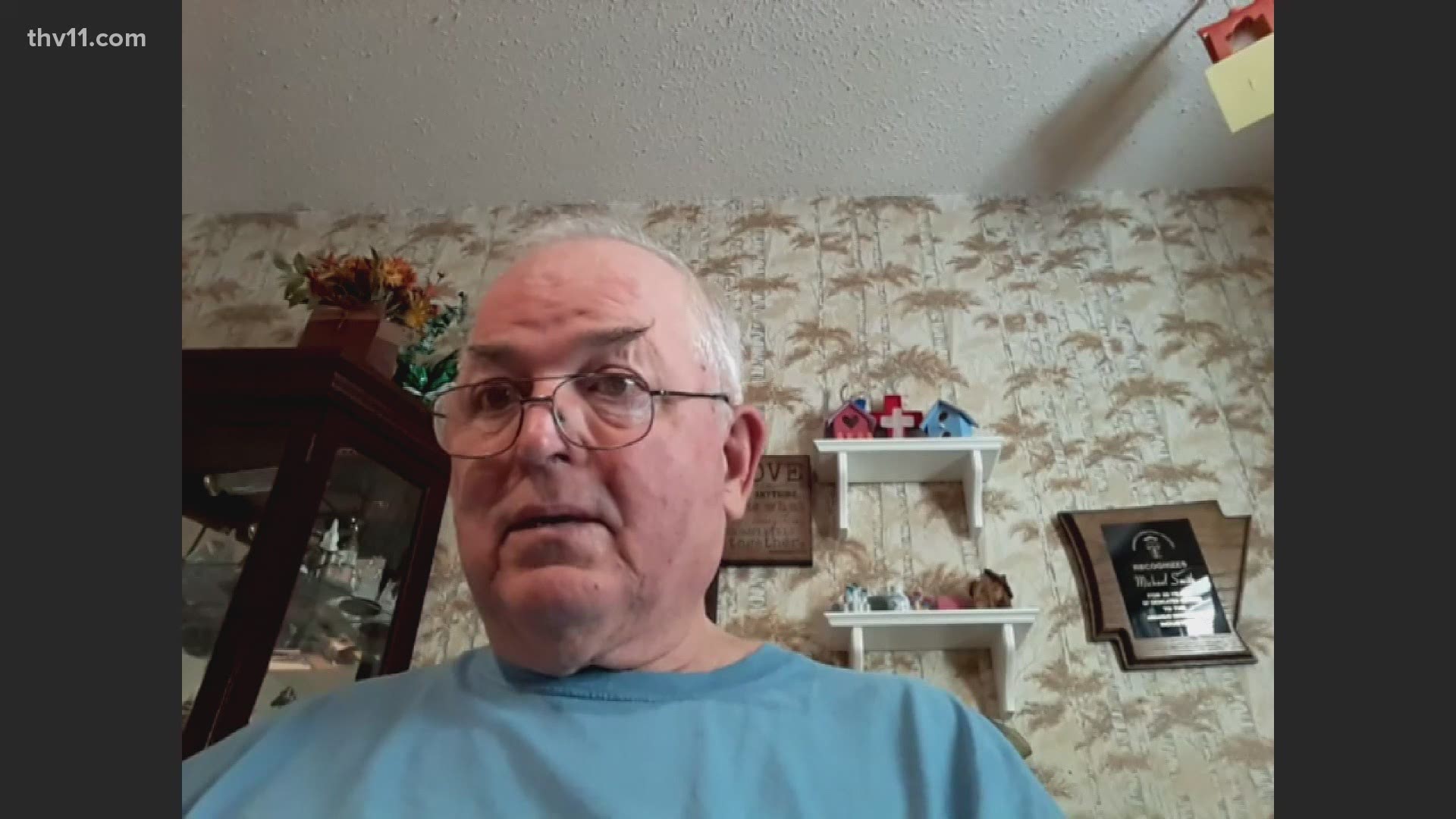JACKSONVILLE, Arkansas — We've shared several stories of people who are still suffering from COVID-19 symptoms months after their diagnosis, calling themselves "long-haulers."
A Jacksonville man, Michael W. Smith, described these months as the most challenging of his life.
"I thought I was the only one," he said.
It's been a never-ending three-month fight for Smith.
"The one thing that really hurts me hard is I can't get up and do what I want to do. I can't get out and do what I used to do," he said.
Smith, who is 65-years-old, was diagnosed with COVID-19 right after Labor Day.
"That weekend, Lord was I sick," he said.
According to Smith, he suffered from shortness of breath, high fever, and fatigue and spent five days at St. Vincent, where he was diagnosed with pneumonia in both lungs.
"I couldn't even get up out of bed to go to the bathroom because I would be gasping for air," he said.
Even now at home, Smith said those symptoms linger.
"Every time I get up and I go to walk someplace, the first thing that strikes my mind is this going to hit me again?" he said.
These after-effects of shortness of breath, fatigue, and brain fog is not just unique to Smith though, according to UAMS lung doctor, Dr. Nikhil Meena.
"It's actually pretty much is, what I would describe, as a phenomenon by now," he said.
Dr. Meena said it doesn't discriminate because hospitals are seeing it in patients from young to old and in mild cases to extreme.
"People who had no symptoms when they had the disease are coming back and have different organ systems that are not perfectly working," he said.
But the question for doctors across the country is why?
"I think all of this is going to come back to COVID, but why exactly, is going to be a multifactorial because it just basically is a bomb that goes off in your body and your body just has to deal with it over a long period of time," Dr. Meena said.
Dr. Meena is hopeful answers will be found through research down the road while Smith just wishes to be his happy self again.
"Here lately it's been hard to speak upbeat things all the time," Smith said.
Dr. Meena advises people who are still suffering from these symptoms to treat it like training for a marathon. Once you feel up for it, push yourself a little more every day to get your body back to where it was before.

